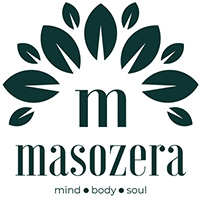The scars of April5 min read
I remember the cold rainy long April days, tears running down my mother’s face.
My father sitting next to the radio, his hand on his left cheek, eyes sunken and deep breaths. It was like he was dying on the inside. For the first time ever my dad was weak, the strongest man I knew, the bravest man, completely helpless.
The time stood still for me, a little girl of six and a half years, as I heard the news.
Uncle Fred, a man so full of life, who had lived with us and was family, was dead. Allegedly killed by a French grenade thrown into the car he was traveling in, blown into pieces.
“Why?!” my father kept asking as he shook his head. He had anticipated a tragedy, a learned man away from his home country, who couldn’t do much to help, a grandfather compared to Uncle Fred. “Why won’t they help us? They came, tore us apart, now they sit back to watch … They took everything that bound us together, everything Rwanda was … Why? They see us torn apart but they ran and disappear…”
My dad never talked or thought about the genocide in terms of Rwandans killing Rwandans, he saw it as something artificially created by foreign masters who now didn’t want to stop the monster they had been feeding.
He would sit visitors down, again and again, to share with them his deep interpretations of those 100 horrible days of 1994. He cried silently, invisibly when he talked about it, but I could see his tears stopping on the edge of his pupils.
Uncle Fred, on the other hand, was one of those who believed they needed to rush back to Rwanda, to fight and protect the powerless. They were like pillars of hope during the time of numbness. And when he was gone, all hope was gone.
I held my breath, I stayed awake haunted by nightmares, scared we were not safe… We were in another country, hundreds of kilometers away, but young as I was, it all felt just too real.
The radio was always on, flooding the home with terrible news. We didn’t play outside much, we listened and worried. Until one day my mom told me it was all over. “The Rwanda Patriotic Front had won the evil war,” she said. She cut images of the military leader, Paul Kagame, from local newspapers and kept putting them into family albums. Years later they were replaced by actual photos, and remain mixed with pictures of relatives.
I never left Uganda until my teenage years. My siblings honoured our dad’s wish to visit Rwanda and learn about where we come from, but I buried my head in the sand. Almost every April I would cry thinking about my parents’ relatives whose lives could not be spared, transformed into ghosts in my mind.
As I grew older, the scars of April would only grow bigger. Once you are mature enough to understand the magnitude of the 1994 Genocide against the Tutsi, it hits you even harder. The slaughter intended to wipe out an entire population put a target on the back of every Tutsi child, woman, man. A million lost their lives in a little more than three months. Husbands were forced to kill their wives and kids to watch their mothers and sisters raped, as dogs ate bodies on the streets. The worst genocide in history, it is believed.
In my twenties, faced by the toughest decision of my life, I left my daughter with her granny and took a random bus to Kigali, processing a relationship gone bad. I sat at the feet of my uncle, asking questions that terrified me, about our family and our history. Even now I can’t say why I went to Rwanda, but I guess I was looking for comfort searching for my roots.
The much needed closure came three years on, working side by side with my cousin living in Rwanda. This man’s entire career had been built around bringing some healing to survivors, opening the eyes of the youth to never fall for any ideology that would breed genocide, and creating peace agents around the continent.
I learnt more about my country from him… This beautiful delicate land I now call home. In Uganda, as welcoming as it is, I was always an outsider. “Kanyarwanda” they called me at school, the little one from Rwanda …
I fell in love with the courage of my people and I’m proud of what they keep achieving… I know it sounds cheesy when I call Rwanda my Wakanda but, hey, it is my paradise, my home!
This Wakanda is the cleanest and most beautiful country in Africa, most open to business of all African countries and leading the continent’s digital revolution. It has the world’s highest representation of women in the national parliament, it gives almost every Rwandan access to medical insurance, and it was the first country in the world to introduce an outright ban on plastic bags. And don’t even get me started about the amazing home-grown solutions!
But every April Rwanda goes silent. We are compelled to reflect and remember the lost lives and survivors, maimed physically and emotionally. We find purpose in our pain to fight against genocide denial by telling our stories.
As my people and I continue to heal, this text is my small contribution, my tale, because I feel such words need a global audience.
The world cannot forget what happened in 1994.

